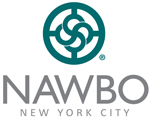When I saw that the September issue of NAWBO ONE was about certification—a topic very close to my entrepreneurial heart—you can imagine my excitement.
I’ve spent years working on different sides of the government contracting arena where certification is key, first in a federal practice of a large consulting firm and later in my own consulting business that focused on helping small businesses navigate the government contracting process. A few years ago, my business partner and I made a game-changing decision that has really fueled our passion and growth: to pivot our focus to become a federal government contractor that supports government organizations in successfully managing their acquisitions, contracts and projects. We are certified as an Economically Disadvantaged, Women-Owned Small Business and a Small Disadvantaged Business and were previously certified in the SBA’s 8(a) program.
Needless to say, I know first-hand that becoming certified can take tremendous grit and tenacity, as the process can be detailed and lengthy. I also know that it can pay off in tremendous ways for women- and minority-owned small businesses as it can lead to more business opportunities and government contracts for which you wouldn’t otherwise be considered. Most public corporations as well as local, state and federal government purchasing agencies have programs for allotting a certain percentage of business to women-owned companies. In fact, the federal government has a statutory goal of awarding 5 percent of eligible prime contracting dollars to women-owned small businesses.
Considering getting certified? Here’s a quick look at the four main types:
- The Small Business Administration (SBA) offers several certification programs, including the 8(a) program for minority business owners, the Women-Owned Small Business (WOSB) designation, and the HUBZone certification, all of which can be helpful if you’re aiming to secure federal contracts.
- Disadvantaged Business Enterprise certification, or DBE, is a federal designation performed by the state and applies to contracts through the U.S. Department of Transportation. This certification presumes certain groups are disadvantaged, including women, black, Hispanic, Native, Asian-Pacific and Subcontinent Asian-Pacific Americans or other minorities.
- The National Woman Business Owners Corporation (NWBOC) has a national certification program for women-owned businesses. NWBOC certification is accepted by many publicly traded corporations that have supplier diversity programs, as well as numerous state and local government entities. NWBOC is also an approved third-party certifier for the WOSB federal contracting program through the SBA. Plus, the group provides certified businesses with a mentoring program and training opportunities.
- There’s also the Women’s Business Enterprise National Council (WBENC) program to get certified. Its requirements are similar to those of NWBOC and it is also an approved certifier for the federal WOSB program.
This issue of NAWBO ONE is designed to give you additional insights into certification. Our Member Spotlight features a NAWBO member who recently went through the process and is beginning to see the benefits. We also offer tips to help you best navigate the certification process.
In today’s business climate, every little edge can help, and for some women business owners, becoming certified is just the edge they need.
—Molly Gimmel, 2018-2019 National Chair


